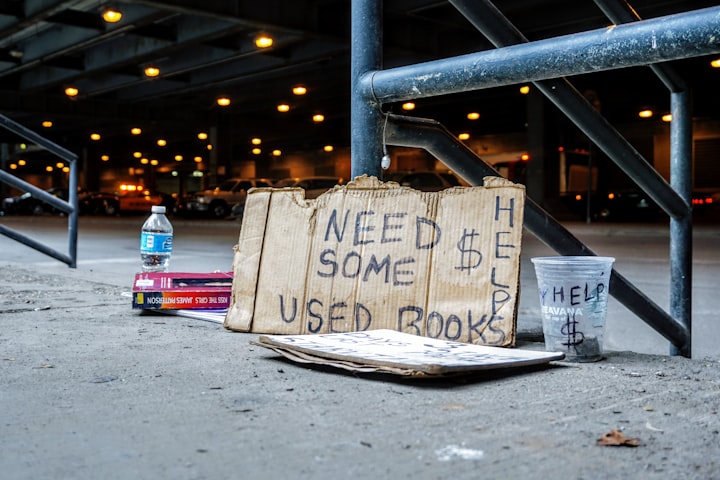The Curious Case of Benjamin Simmons
The deeper truth at the heart of basketball’s weirdest scandal.

You can’t play hard to get when nobody wants you.
This is the simple irony at the heart of the Ben Simmons case, that glorious, juicy, cringe-worthy train-wreck that we just can’t take our eyes off of.
If you are not a basketball fan and you opened this article because my clickbait skills are simply too much for you (are you listening Buzzfeed? Vox? ...anybody??), let me give you a brief rundown.
Ben Simmons grew up in Australia, dominating in basketball and Australian football before moving to the US at the age of 16 to pursue basketball. He excelled in high school, playing in the 2015 McDonald’s All-American Game and even winning the Morgan Wootten Award, which is given to players exhibiting character, leadership, and scholarship.
Simmons played college basketball for LSU (alma mater of basketball legend Shaquille O’Neal) for the 2015-16 school year, recording an solid 19 points, 5 assists, and 11 rebounds per game. Things were looking promising for the young player, and after only one year with LSU he signed with the Philadelphia 76ers.
The tall Australian kid finally made it.
-
The 76ers put Simmons in the point guard position, a role that he played in the nontraditional “point forward” style. A point forward is a player who plays the point guard position with the aggression and drive-to-the-basket of a forward. Pioneered by such 80s greats as Dennis Johnson and Magic Johnson, and epitomized today by Lebron James, the point forward style tends to attract taller, bulkier players. Simmons, at 6’11”, is one of the tallest point guards in the league.
Why did Simmons prefer this style, driving to the basket rather than leading from the outside?
Well… he can’t shoot.
-
There you have the kernel of the whole problem. Ben Simmons can’t shoot. And because of that, he’s afraid to shoot. He hesitates. He gives up clear shots because he fears missing.
Check out this interview with Shaq.
That fear he's referring to is everywhere in Simmon’s game. It contributed to the 76ers’ loss in the 2021 NBA semifinals against the Atlanta Hawks. In that series, Simmons shot 33% from the foul line (a terrible figure), pulled in a mere 6 rebounds and 9 points per game (well below his own average for the year), and played with a distinct lack of spirit, poise, and focus. In the final quarters of 5 of the 7 games in the Hawks series, Simmons did not attempt a single shot.
This timidity caused coach Doc Rivers to doubt Simmon’s presence on the team. When asked by a reporter if Simmons had what it took to be a point guard on a championship team, Rivers responded, “I don't even know how to answer that right now."
Disappointed in himself, in his coach’s lack of faith, in his teammate’s impatience, and in 76ers fans’ dismay, Ben Simmons decided he’d had enough. He requested a trade.
The thing is, the 76ers don’t want to trade him. At least not yet.
And there you have it. The simple dilemma around which so much drama has circulated.
Simmons wants out; the 76ers say ‘no.’
*
THE DEEPER ISSUE
Here’s the thing.
NBA players sign contracts with teams. Good players usually sign multiple-year contracts with teams. Once a player signs a contract, they have committed to staying with that team, in that city, for the duration stipulated by the contract. The player has no official ability to break the contract and go to the other team.
The team on the other hand… that’s a different story.
Teams can trade contracts with other teams. So let’s say it’s your rookie year, and you sign a three-year contract with the Los Angeles Lakers. Half a season in, the Lakers decide they’re going to trade you to the Minnesota Timberwolves. Despite the fact that you signed a contract with the Lakers, you now work for the Timberwolves, who have “bought” your contract. There’s not a thing you can do about it.
It should be said that a good player, or even a mediocre player who has a good working relationship with his team’s leadership, does have some degree of unofficial say in this process. He can go to management and say, “look, we’ve been together for x number of years. We’ve had a good run. I still have a year left on the contract, but I’d really love to be traded to Boston.” Sometimes this happens.
But when the relationship is sour, as with Ben Simmons, good will is out the window. In all fairness, the 76ers made an effort to trade him, but could not secure a deal they felt was good enough. They appear to be waiting to see if any other team becomes interested in making the trade. And they appear to be perfectly okay with waiting as long as they need to.
But Ben Simmons doesn’t want to wait. The blood is so bad that he wants out now. So he’s resorted to basically striking. He avoids scheduled media appearances, skips practice, or goes to practice only to loaf about and not participate, and even deliberately got himself suspended from the 76ers’ first game of this season. He’s hoping that by being utterly useless, the 76ers will be forced to trade him.
A game of chicken. At this point, neither party looks ready to back down.
It’s easy to despise Ben Simmons for this. But in all his petulance, childishness, and unprofessionalism, all Ben Simmons is asking for is something that you and I take for granted.
He wants to decide where he works.
*
THE DARK UNDERBELLY OF TRADING
There’s something insidious about the whole concept of trading, especially in the NBA. Something a little… slavey about it.
As quoted in the New York Times article “Is Slavery’s Legacy in the Power Dynamics of Sports?” Golden State Warriors player Draymond Green expressed ambivalence about the very lexicon of the NBA. Get rid of the word “owner” he argued. Despite the fact that African Americans comprise three quarters of all players and the largest portion of fan viewership, all but a few teams are owned by white people, and all but a handful of head coaches are white. Leadership is skewed. So when you have a situation in which a bunch of white owners control where black players live, where they work, whom they work for, and when and how their contracts will be honored, you have a paradigm that seems vastly outdated.
In recent years, player complaints have been gaining success. The power dynamics have begun to shift. Star players like James Harden, Lebron James, and Kevin Durant have been able to move to teams when and how it suited them. They seem to have an ally in NBA Commissioner Adam Silver.
But does the 76ers’ holdout represent a push-back against this shift in power? Or does it represent merely the fact that Ben Simmons isn’t that good, and doesn’t have the clout that a Durant or a Harden has?
*
WHY IT MATTERS
This may be an ugly spectacle, but at the end of the day this is why we watch basketball. We watch basketball because of the human element. We watch basketball because despite the fact that the players may look like superhuman machines, they are, at the end of the day, fallible humans, with all of the same foibles, hangups and fears that we have.
Basketball is a sport of people. It’s a great human drama.
Will the power dynamics between owners and players ever settle into something resembling balance? I have no clue. Times are certainly changing, and players have more power over their careers now than they ever had before.
At the end of the day, what what the curious case of Ben Simmons teaches us is that basketball is at its most magnetic when these human dramas play out in front of us.
And I'm not even close to tired of this drama.
About the Creator
Eric Dovigi
I am a writer and musician living in Arizona. I write about weird specific emotions I feel. I didn't like high school. I eat out too much. I stand 5'11" in basketball shoes.
Twitter: @DovigiEric






Comments
There are no comments for this story
Be the first to respond and start the conversation.